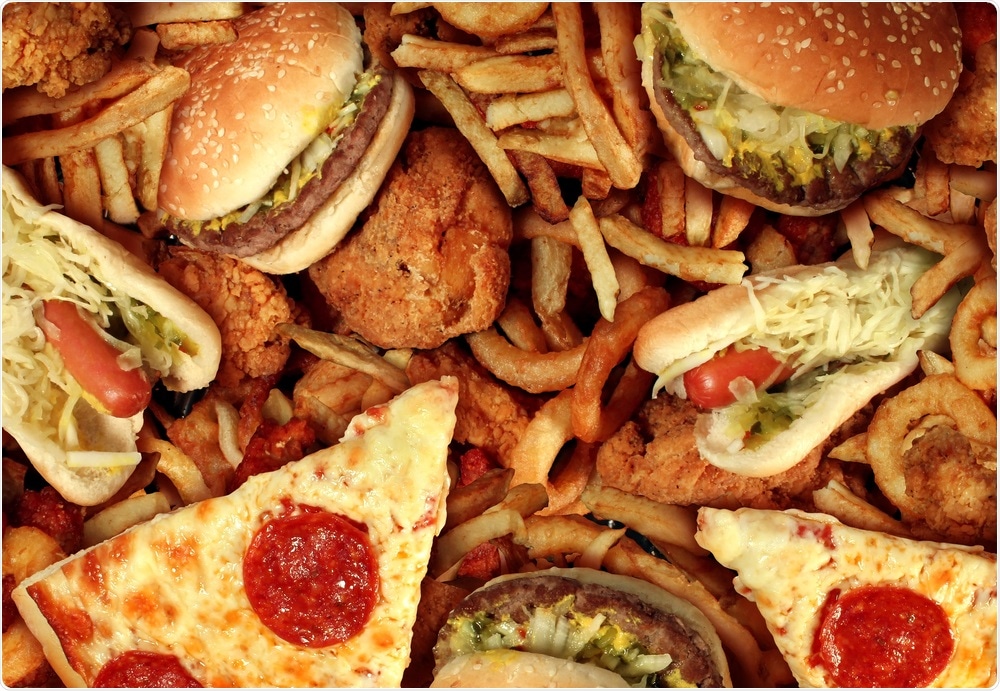According to a new study, consumption of a high-fat diet could trigger a response in the heart, causing destructive growth and resulting in a higher risk of heart attacks.

Image Credit: Lightspring/Shutterstock.com
In a new article published in the Biochemical and Biophysical Research Communications journal, scientists looked at mice fed with a high-fat diet and investigated its effect on the oxidative stress levels in heart cells.
The researchers from the University of Reading observed that the mice cells had double the amount of oxidative stress, and caused the heart cells to become up to 1.8 times larger due to cardiac hypertrophy, which is linked to heart disease.
Our research shows one way in which a high-fat diet can cause damage to the muscle cells that make up our hearts. It appears that a switch happens at a cellular level when the mice were fed on a high fat regime which causes a normally harmless protein, Nox2, to become overactive. The precise nature of how the Nox2 protein goes onto cause oxidative damage and set off destructive hypertrophy is still being researched.”
Dr Sunbal Naureen Bhatti, Study First Author, University of Reading
Dr Bhatti continued, “We are really just scratching the surface of how the protein Nox2 responds to diets, but our research clearly demonstrates that high-fat diets have the potential to cause significant damage to the heart.”
The team targeted a crucial protein, called Nox2, which is said to be involved in increasing the oxidative stress in the heart. The research work revealed that the mice fed with a high-fat diet had double the amount of Nox2 activity, which also resulted in an analogous quantity of reactive oxygen species (ROS)—a free radical linked to pathological damage of the body.
To find out if the Nox2 protein was involved in triggering the cardiac stress, the researchers compared the outcomes with mice bred particularly to “knock out” Nox2, inhibiting the protein from stimulating at a cellular level. The “knock out” mice were also given a high-fat diet, but displayed little or none of the same increased levels of oxidative stress.
Additionally, the team employed three experimental treatments which tend to decrease Nox2-related ROS production, and observed that all three therapies showed some potential in decreasing the impact of ROS in impairing the mice hearts.
The mice fed with high-fat diets received 45% of their calorie intake from fat, and 35% carbohydrate, and 20% from protein.
Source:
Journal reference:
Bhatti, S N & Li, J-M (2020) Nox2 dependent redox-regulation of Akt and ERK1/2 to promote left ventricular hypertrophy in dietary obesity of mice. Biochemical and Biophysical Research Communications. doi.org/10.1016/j.bbrc.2020.05.162.